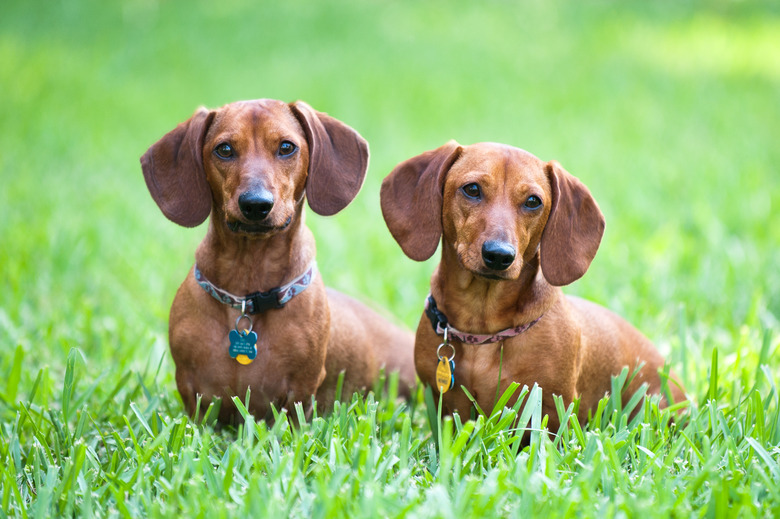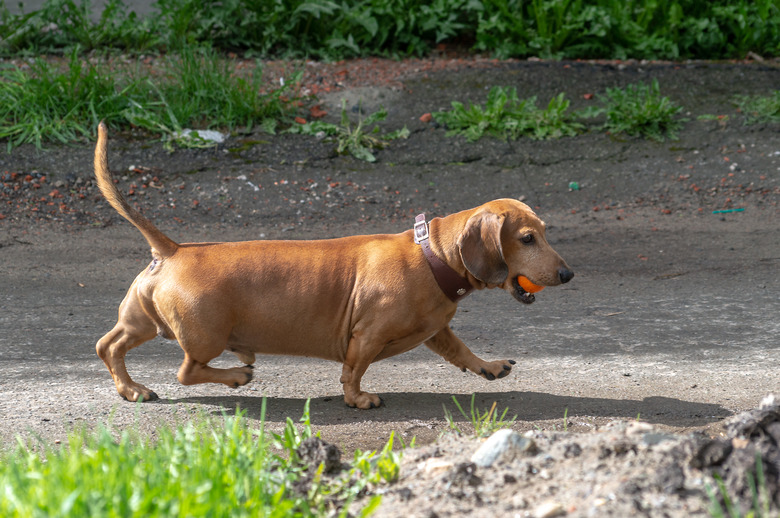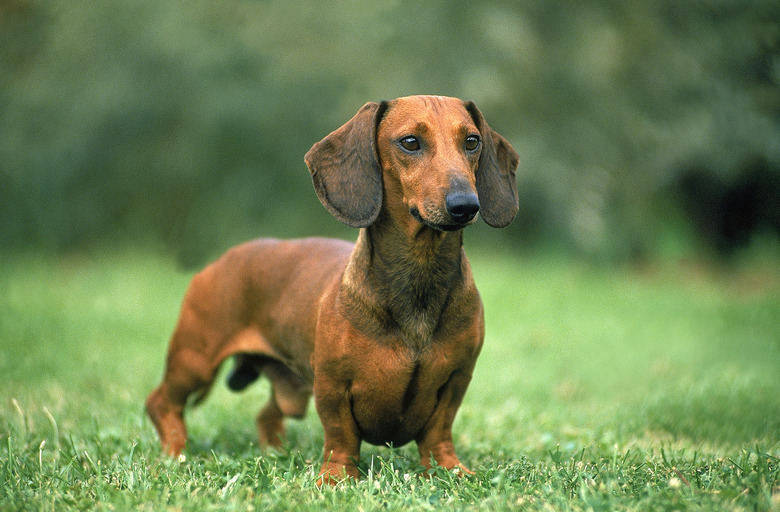Dachshund Skin Problems
While dachshunds might suffer from some of the skin conditions common to all canines — primarily allergic reactions to fleas, food, or a pollutant — certain dachshund skin problems might be genetic in nature. Your vet can treat most hereditary dachshund skin issues; however, if your dog is severely affected you will likely need to take him to a board-certified veterinary dermatologist.
Dachshund skin disease
Dachshund skin disease
Acanthosis nigricans is a pigmentation disorder found primarily in dachshunds. Signs appear early, usually before the dog is one year old. Symptoms include the skin darkening and thickening, and greasy, flaky skin condition known as seborrhea developing. Your dachshund might also suffer from related bacterial skin infections and hair loss. Over time, the thick, dark skin, and seborrhea can spread over most of his body.
While there's no cure for the condition, in mildly affected dogs it presents only a cosmetic issue. In more severely affected dachshunds, your vet might prescribe medicated shampoos and steroids to treat the symptoms, along with supplements to improve overall skin health.
Canine yeast Infection
Canine yeast Infection
Dachshunds are among the breeds predisposed to Malassezia dermatitis, a yeast infection. Malassezia dermatitis can occur along with Acanthosis nigricans or on its own. Early symptoms include an itchy rash, soon progressing to the skin thickening and foul-smelling infections resulting.
Skin folds are particularly vulnerable to Malassezia infiltration. Once your vet diagnoses this yeast infection via a skin scraping, she might prescribe shampoos to eradicate yeast, along with oral antifungal drugs.
Hypothyroidism in Dachshunds
Hypothyroidism in Dachshunds
Aging dachshunds can develop hypothyroidism, resulting from insufficient hormone production by the thyroid glands. Initial symptoms often involve skin issues, including dryness, recurrent infections, skin thickening, and discoloration and hair loss. Other symptoms include frequent ear infections, behavioral changes, lethargy, and cold intolerance.
Once your vet makes a diagnosis through blood testing for thyroid hormone levels, she can prescribe daily thyroid pills. Your dachshund must take this medication for the rest of his life, but his symptoms should resolve within a few weeks after starting drug therapy.
Dachshund skin tumors
Dachshund skin tumors
A common dachshund skin disease reveals itself in the form of a small mass. If your dachshund develops any lumps or bumps on his skin, take him to the vet for an examination. Common skin tumors in dachshunds include apocrine gland tumors, affecting the anal sac. While surgery, chemotherapy and radiation can buy your dog some time, these growths generally prove fatal within a year.
Benign tumors called lipomas often occur in the breed, and dachshunds are susceptible to a rare type of this tumor known as diffuse lipomatosis. It affects the dog's entire skin, resulting in prominent folds in the skin on the neck and body.
Dachshund skin issues
Dachshund skin issues
Dachshunds are prone to itchy skin and sometimes this is simply a result of an allergic reaction or a dry environment. Chronic dry skin that is not a skin disease or infection can often be addressed by changing the dog's diet. Consult a veterinarian or pet nutritionist. However, some external treatments can help such as specialty dog shampoos or flea medication.


